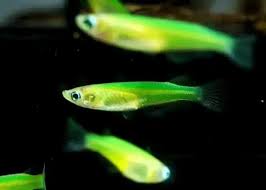Henan Province, located in central China, has a long history of tea cultivation. The region’s fertile land, balanced climate, and traditional farming methods have contributed to the production of high-quality tea. However, in recent years, sustainable tea cultivation has become a growing focus. Farmers and tea producers in Henan are adopting eco-friendly practices to ensure the long-term health of the soil, protect biodiversity, and produce chemical-free, high-quality tea.
This article explores the sustainable farming techniques used in Henan’s tea plantations, including organic cultivation, water conservation, soil management, biodiversity protection, and responsible harvesting.
1. The Importance of Sustainable Tea Cultivation in Henan
Sustainability is becoming increasingly important in Henan’s tea industry due to several factors:
- Environmental concerns: Excessive use of pesticides and chemical fertilizers can damage the ecosystem, pollute water sources, and degrade soil quality.
- Consumer demand: Tea drinkers are seeking healthier, pesticide-free options, driving the shift toward organic and sustainable tea.
- Climate change adaptation: Unpredictable weather patterns are forcing farmers to adopt more resilient farming methods to maintain stable yields.
- Long-term productivity: Sustainable farming ensures that tea plantations remain fertile and productive for generations.
By implementing eco-friendly farming techniques, Henan’s tea farmers are preserving both their cultural heritage and the environment while producing higher-quality tea leaves.
2. Organic Tea Cultivation – A Natural Approach
One of the most significant aspects of sustainable tea farming in Henan is organic cultivation, which eliminates synthetic chemicals and promotes natural growing processes.
2.1. Avoiding Chemical Pesticides and Fertilizers
Instead of using chemical pesticides, Henan tea farmers have adopted biological pest control methods, such as:
- Introducing beneficial insects (e.g., ladybugs) to control pests naturally.
- Using plant-based pesticides derived from neem, garlic, and other natural sources.
- Crop rotation and intercropping to reduce pest populations and promote a balanced ecosystem.
For soil nutrition, farmers rely on organic fertilizers such as:
- Composted tea leaves and plant matter to enrich soil nutrients.
- Animal manure from local farms to improve fertility.
- Legume cover crops that fix nitrogen in the soil, reducing the need for artificial fertilizers.
These methods ensure that Henan’s tea plants grow naturally, free from harmful chemicals, leading to cleaner, healthier tea.
2.2. Encouraging Natural Growth Cycles
Unlike conventional farms that force tea plants to grow quickly with synthetic fertilizers, sustainable tea farms in Henan allow plants to grow at a natural pace. This results in:
- Higher concentrations of antioxidants and flavor compounds in the tea leaves.
- A richer, more complex taste compared to chemically enhanced tea.
- Stronger, healthier tea bushes that are more resistant to disease and pests.
By respecting natural growth cycles, Henan farmers produce premium-quality tea while reducing environmental impact.
3. Water Conservation – Protecting an Essential Resource
Water is a crucial element in tea cultivation, and Henan’s farmers have developed efficient irrigation techniques to minimize waste and prevent water shortages.
3.1. Drip Irrigation Systems
To reduce water consumption, many tea farms in Henan use drip irrigation, which:
- Delivers water directly to the plant roots, preventing runoff and evaporation.
- Uses less water compared to traditional flood irrigation methods.
- Ensures a consistent water supply, even during dry seasons.
Drip irrigation not only conserves water but also improves soil health by preventing overwatering.
3.2. Rainwater Harvesting
Henan tea farmers also collect and store rainwater in small reservoirs to:
- Reduce dependence on groundwater and protect local water supplies.
- Provide clean, natural water for tea plants without the risk of contamination.
- Ensure steady irrigation during dry periods.
This sustainable approach helps maintain healthy tea crops while preserving natural water sources.
4. Soil Health and Erosion Control
Maintaining fertile, nutrient-rich soil is essential for sustainable tea farming. Henan farmers use various techniques to preserve soil quality and prevent erosion.
4.1. Composting and Organic Mulching
Adding organic mulch and compost to tea fields helps:
- Improve soil structure and moisture retention.
- Encourage beneficial microbial activity that enhances nutrient availability.
- Reduce the need for artificial fertilizers.
4.2. Terrace Farming in Hilly Regions
Many tea plantations in Henan are located on mountainous terrain, making them vulnerable to erosion. To prevent soil loss, farmers use terrace farming, which involves:
- Creating step-like fields to slow water runoff and retain soil.
- Planting grass or other ground cover to hold soil in place.
- Using natural barriers, such as hedges, to block wind and prevent soil displacement.
These methods ensure that Henan’s tea-growing regions remain fertile and productive for generations to come.
5. Biodiversity and Natural Ecosystem Protection
Henan’s tea farms are not just agricultural spaces but also ecosystems that support a variety of plants and animals. To preserve biodiversity, farmers:
- Plant native trees and flowers around tea fields to attract pollinators like bees and butterflies.
- Avoid monoculture farming, instead growing different crops alongside tea to promote ecological balance.
- Maintain wild habitat areas within plantations to support local wildlife.
These biodiversity-friendly practices enhance soil health, control pests naturally, and improve overall tea quality.
6. Responsible Harvesting and Processing Techniques
Sustainability also extends to how tea leaves are harvested and processed. Henan tea farmers follow ethical and environmentally friendly practices to ensure quality and sustainability.
6.1. Hand-Picking Tea Leaves
Many sustainable tea farms in Henan hand-pick tea leaves instead of using machines, which:
- Reduces damage to tea plants, allowing them to grow back stronger.
- Ensures only the best leaves are selected, improving the tea’s overall quality.
- Supports local employment, providing jobs to skilled tea pickers.
6.2. Eco-Friendly Tea Processing
Traditional processing methods, such as sun-drying and low-temperature roasting, are preferred over energy-intensive drying machines. These techniques:
- Reduce carbon emissions associated with industrial tea processing.
- Preserve the tea’s natural aroma and flavor.
- Require minimal electricity, making them more sustainable.
By embracing traditional, energy-efficient processing, Henan’s tea producers reduce their environmental footprint while maintaining authentic tea flavors.
7. The Future of Sustainable Tea Farming in Henan
As demand for organic and sustainable tea continues to grow, Henan is well-positioned to become a leading example of eco-friendly tea production. Moving forward, farmers and tea producers are focusing on:
- Expanding organic certification programs to ensure transparency and quality.
- Developing climate-resistant tea varieties to cope with changing weather patterns.
- Enhancing community-based farming initiatives to empower small-scale tea growers.
Through continued innovation and dedication to sustainability, Henan’s tea industry is set to thrive while protecting the environment for future generations.
Conclusion
Henan’s sustainable tea cultivation methods showcase a harmonious balance between nature and agriculture. By prioritizing organic farming, water conservation, soil health, biodiversity protection, and responsible harvesting, tea farmers in the region are creating a healthier, more eco-friendly tea industry.
For tea lovers seeking pure, high-quality, and environmentally responsible tea, Henan’s fresh tea varieties offer an exceptional experience—one that embodies both tradition and sustainability.










